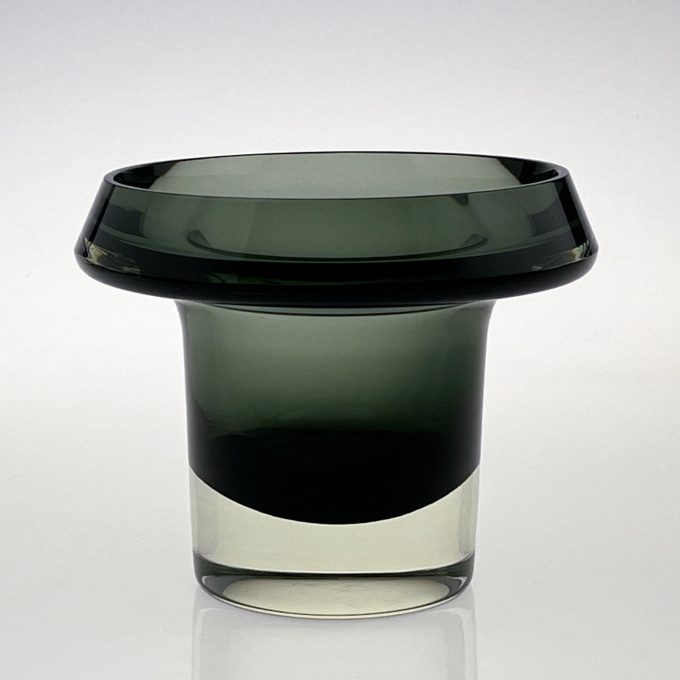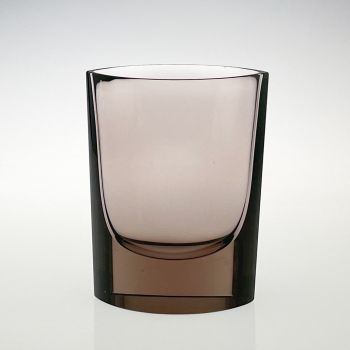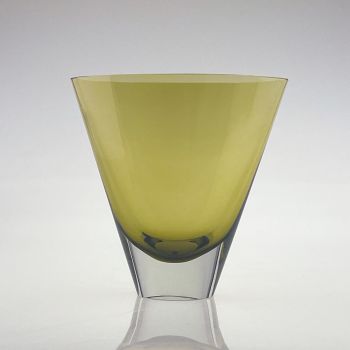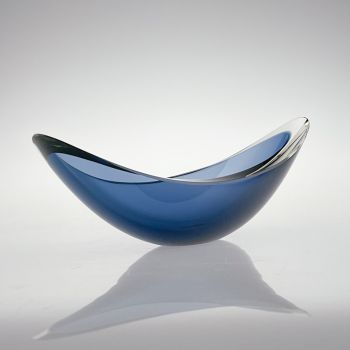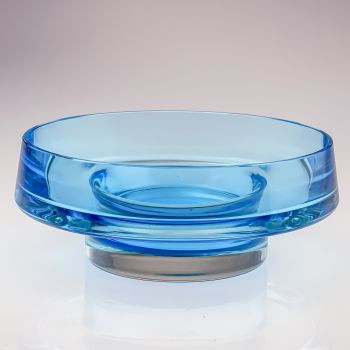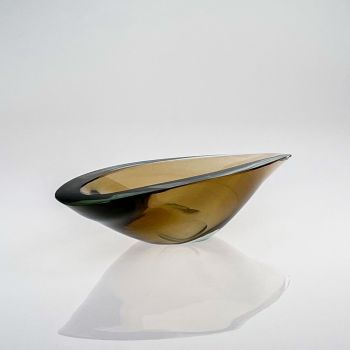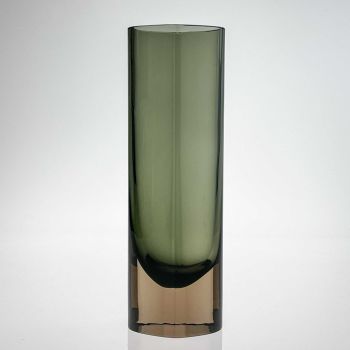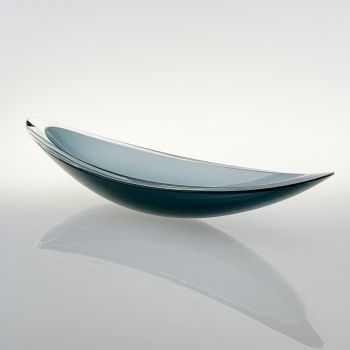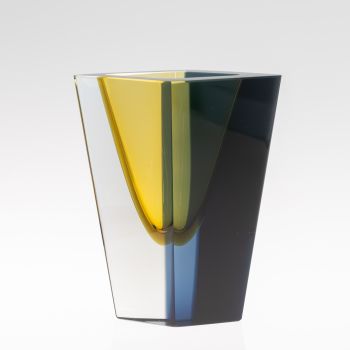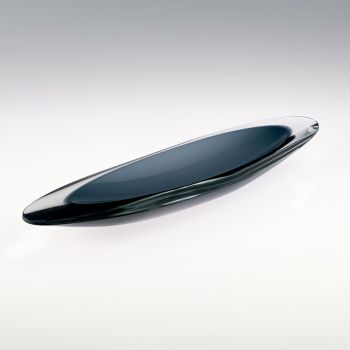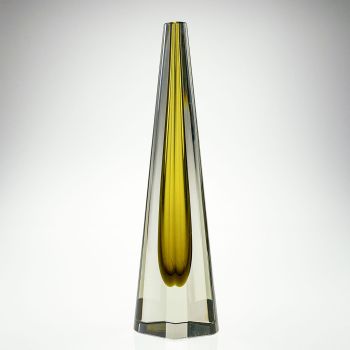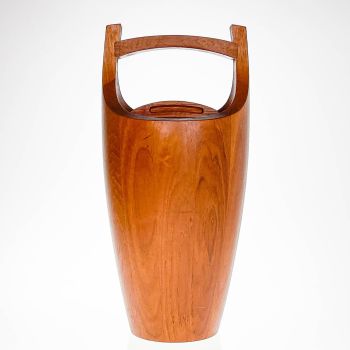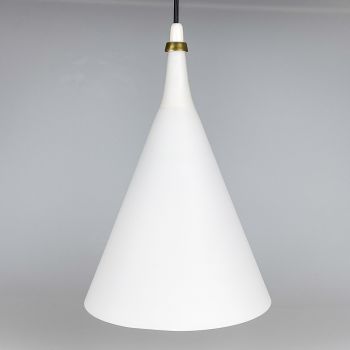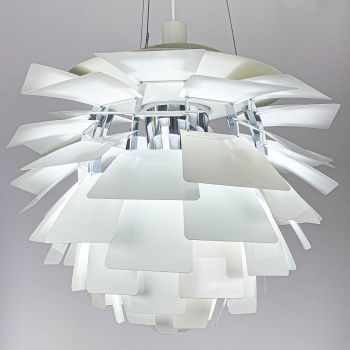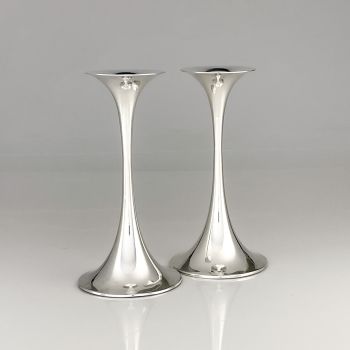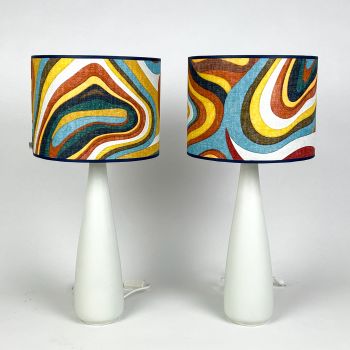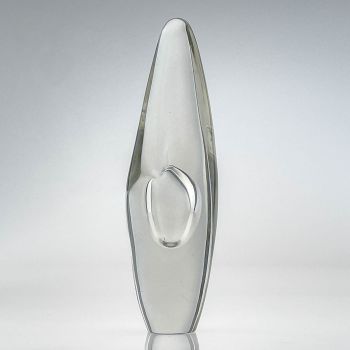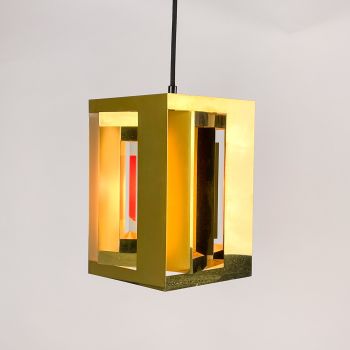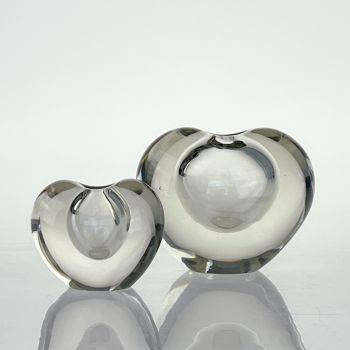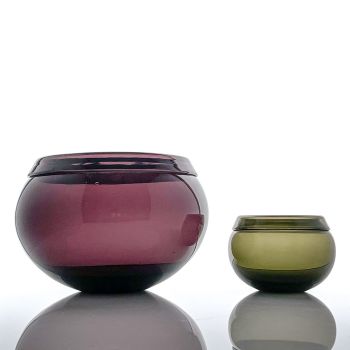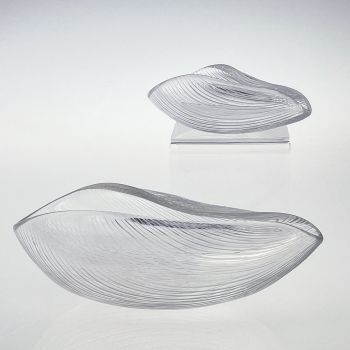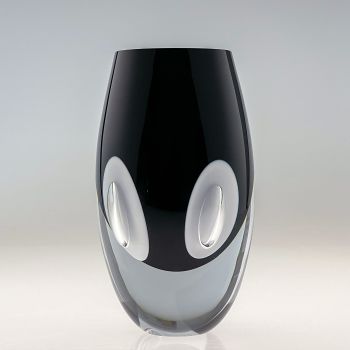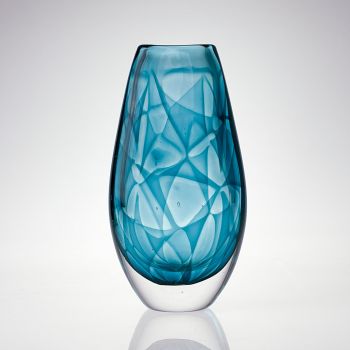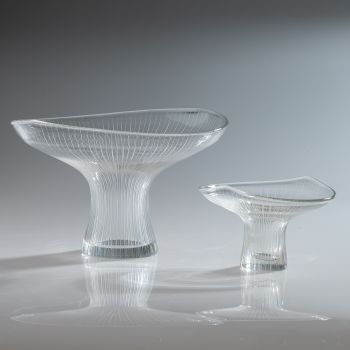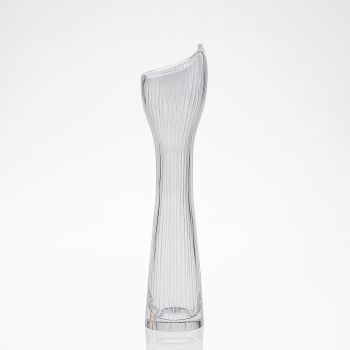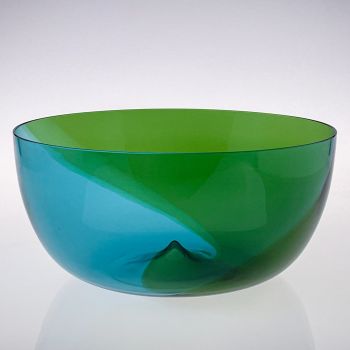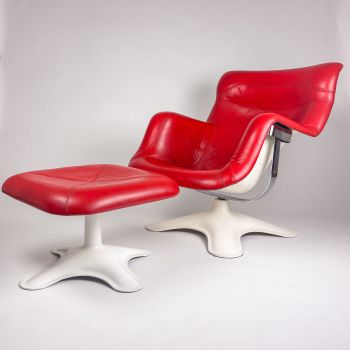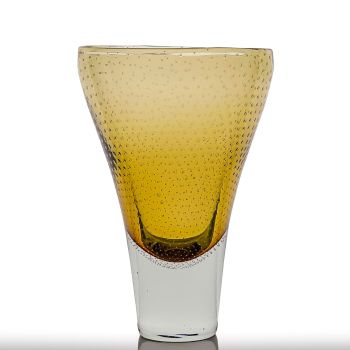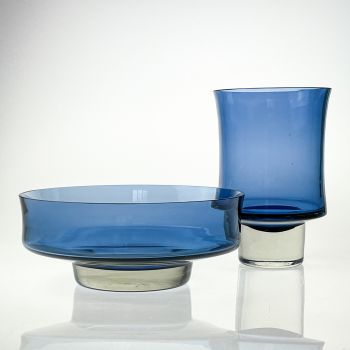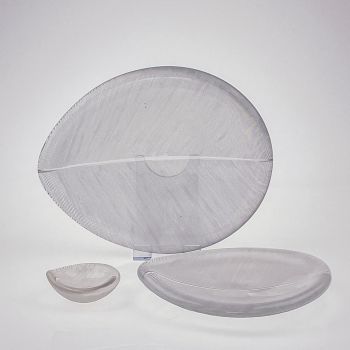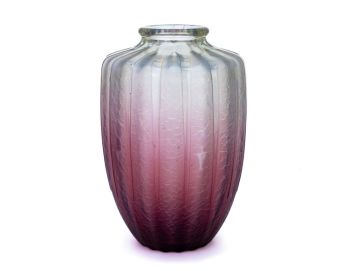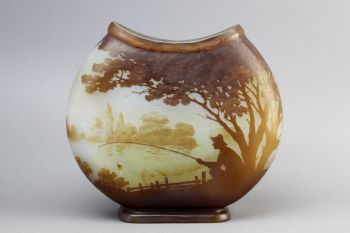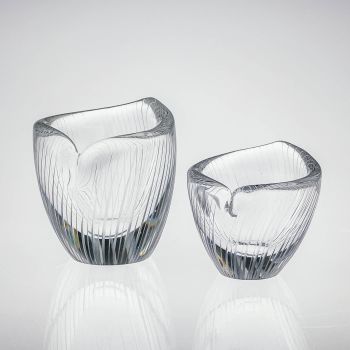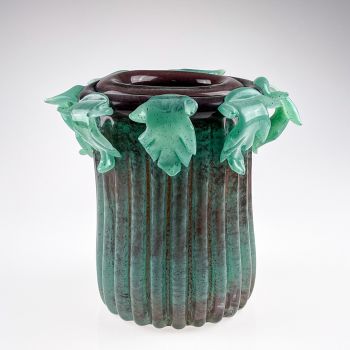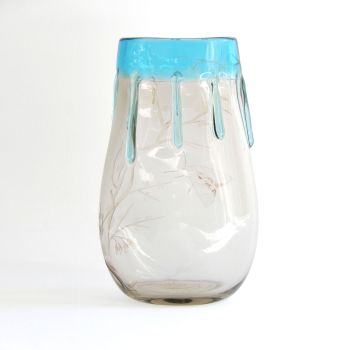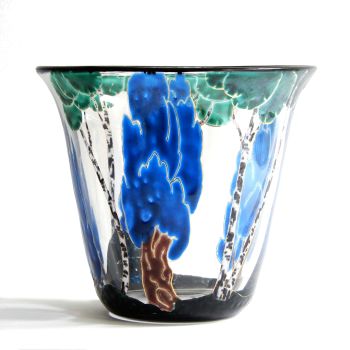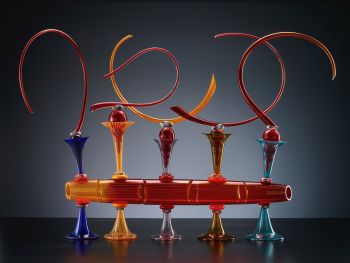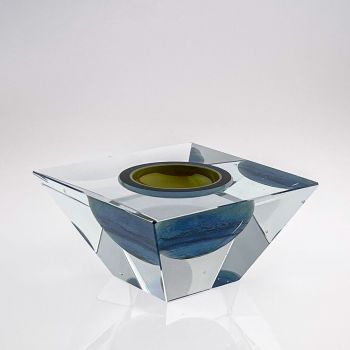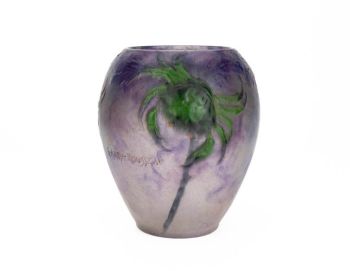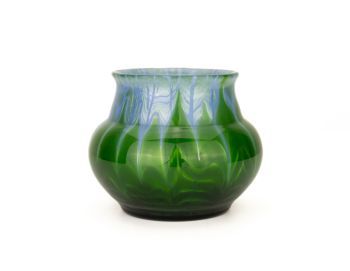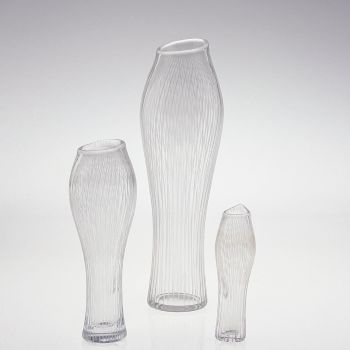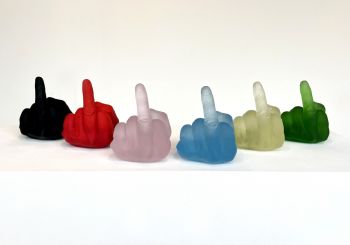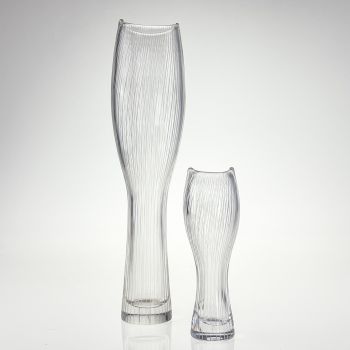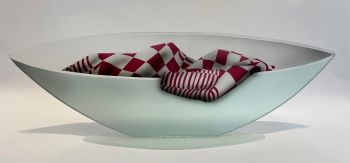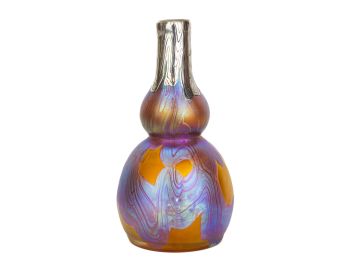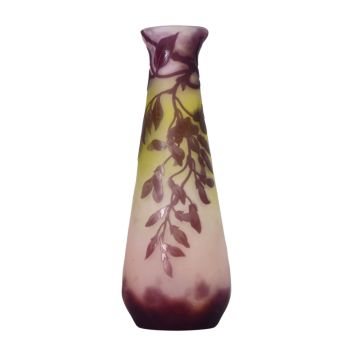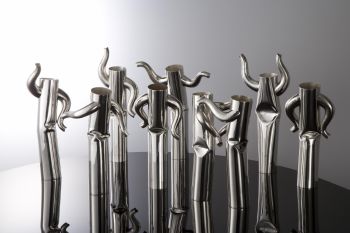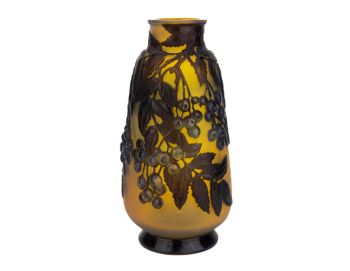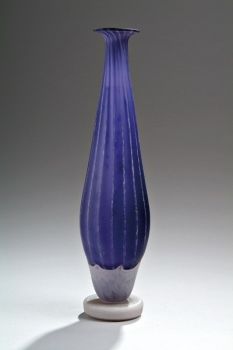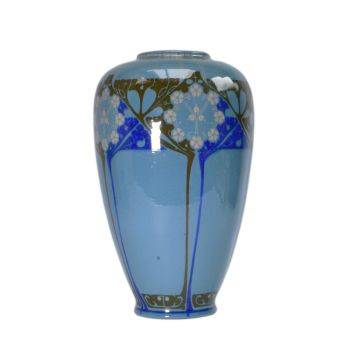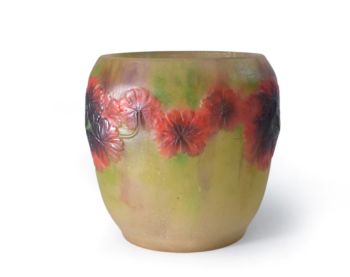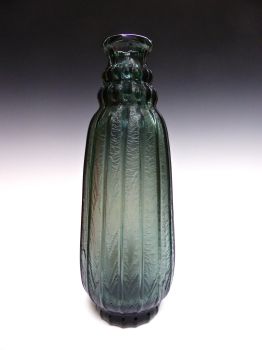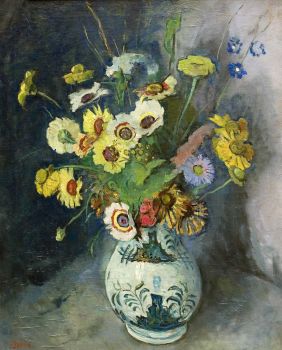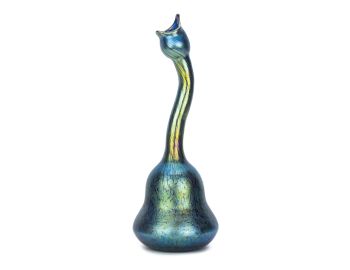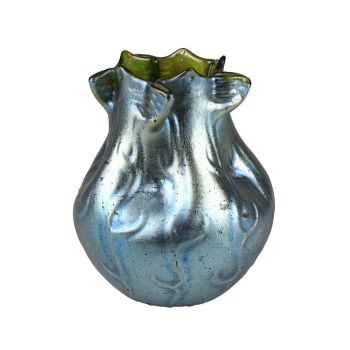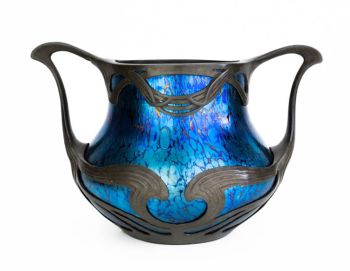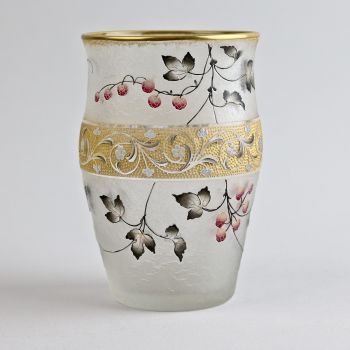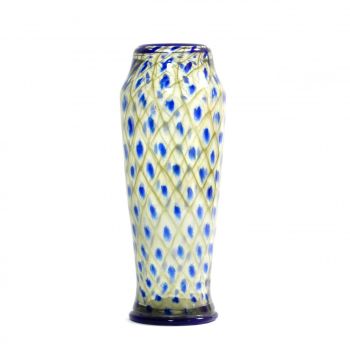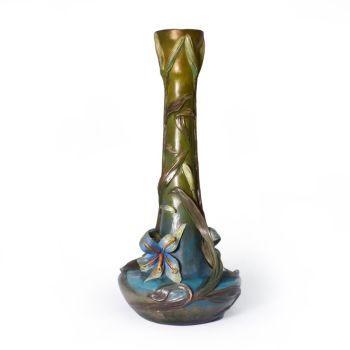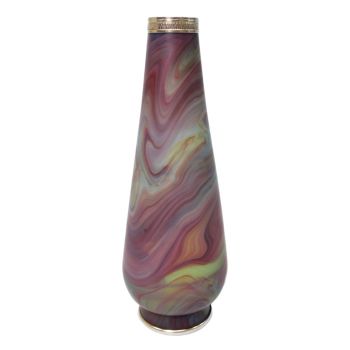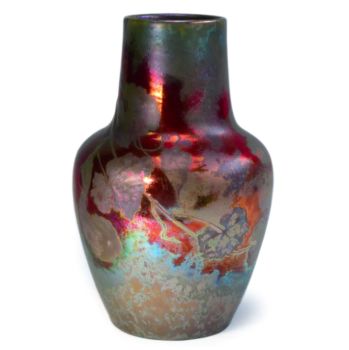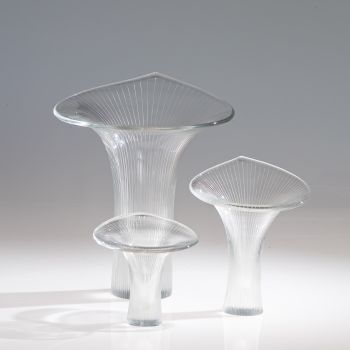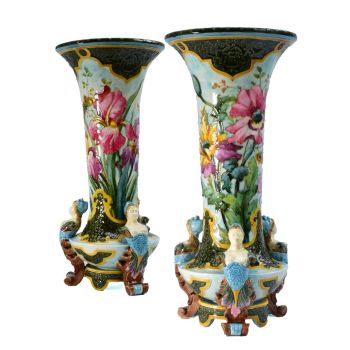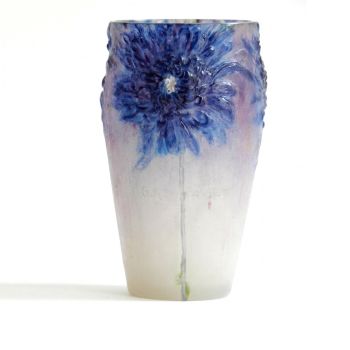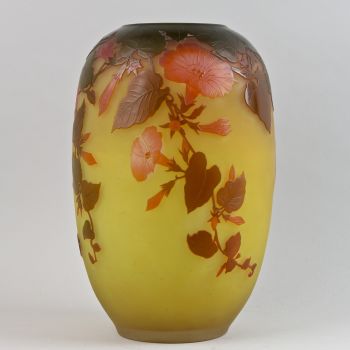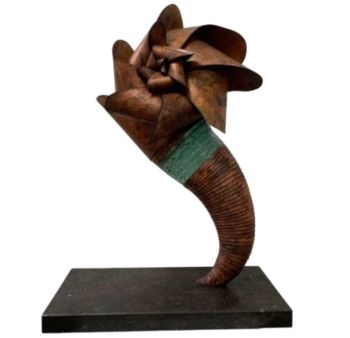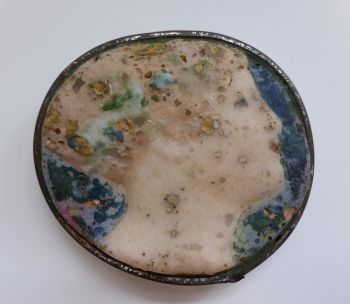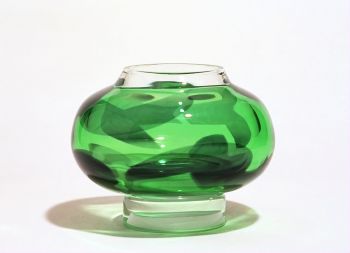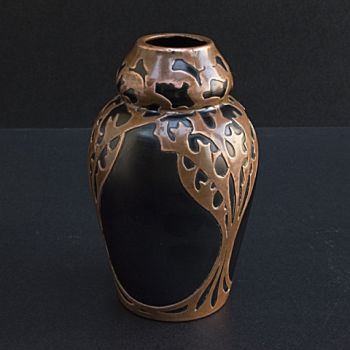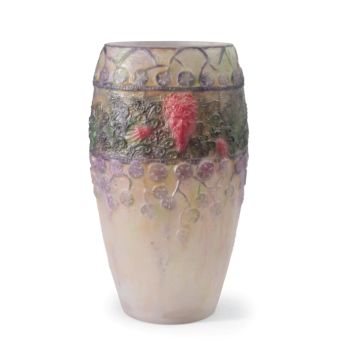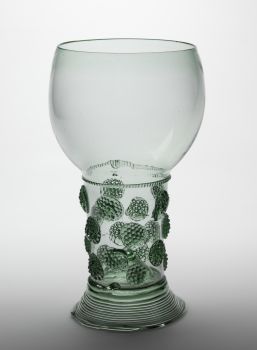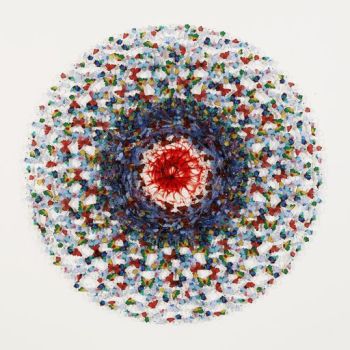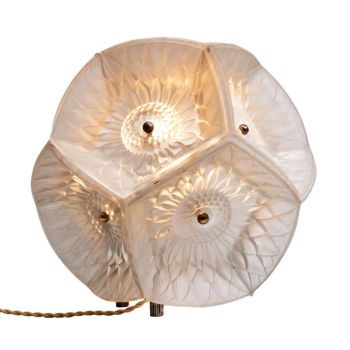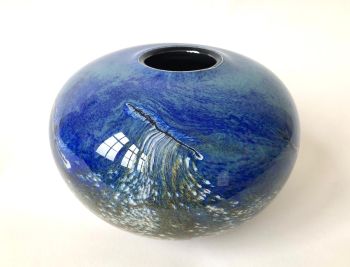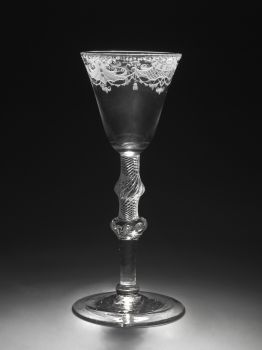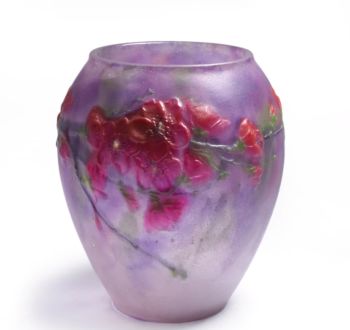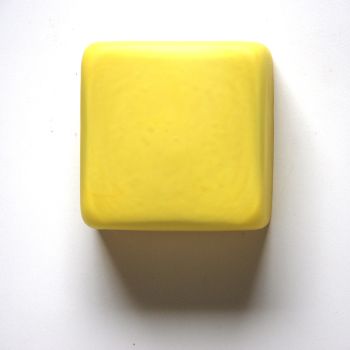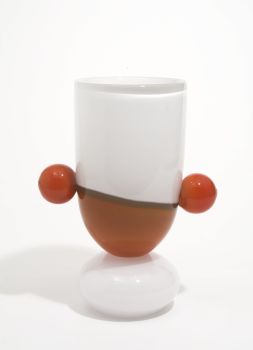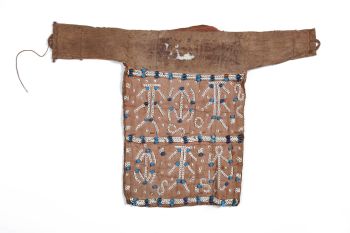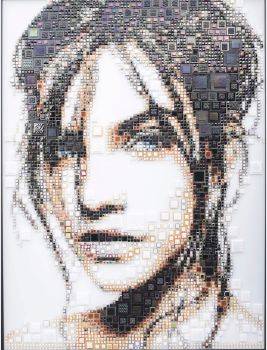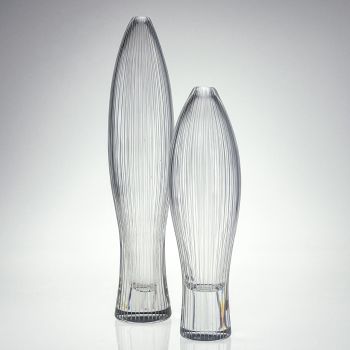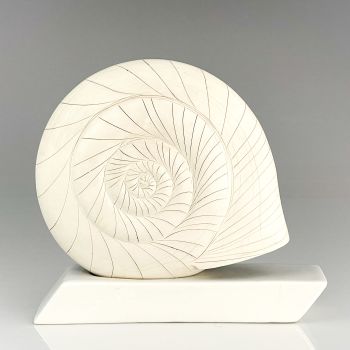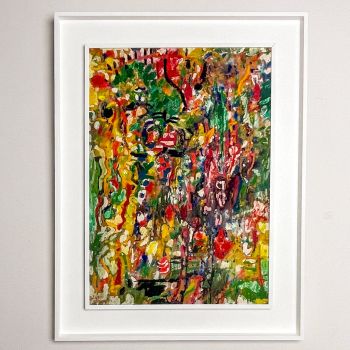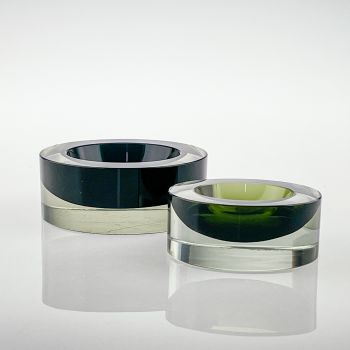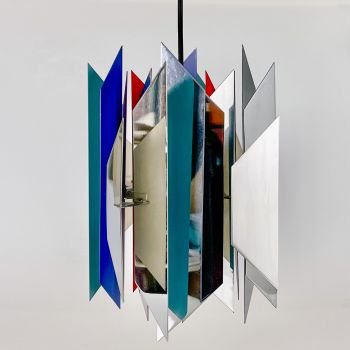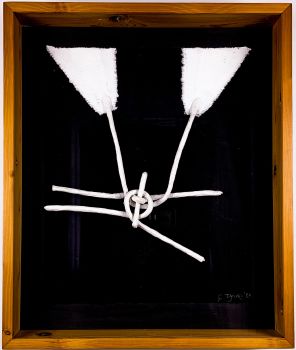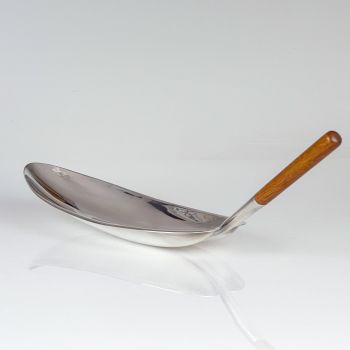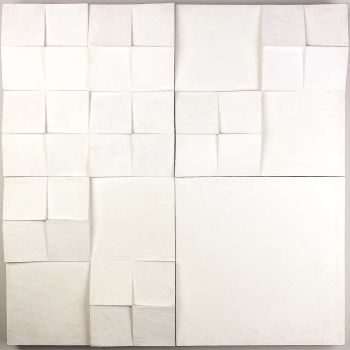Scandinavian Modern green glass Art-object, Model KF260 – Nuutajärvi-Notsjö, Finland circa 1965 1965 - 1969
Kaj Franck
Verre
14 cm, ø 19 cm
ConditionVery good
€ 400
Van Kerkhoff Art
- Sur l'oeuvre d'artA Scandinavian Modern grey-green and clear glass art-object, model KF260. Designed by Kaj Franck in 1960, and executed by the Nuutajärvi-Notsjö glassworks circa 1965.
These KF260’s were only made between 1960 and 1966 in three different colours (green, blue and purple) and three sizes (110, 140, 220 mm). This being a middle sized green coloured example.
It is marked underneath the base in diamondpen: Nuutajärvi-Notsjö. In accordance with Kaj Franck’s ideas regarding the role of the artist in the creative process, his designs were – from mid 1960’s until circa 1970 signed with the factory name only.
About Kaj Franck
Kaj Franck (Vyborg, Finland 1911 – Santorini, Greece 1989) was an influential Finnish designer and leading figure in Finnish art-world between 1940-1980. Today his name is used for the prestigious “The Kaj Franck Design Prize” annually awarded by the Finnish Design Forum.
Born in 1911 on the Finnish Russian border in a family of architects (his grandfather was director of the famous Arabia Ceramics factory) of Finnish-German-Swedish decent.
He attended the furniture department of Taideteollinen korkeakoulu (todays Aalto university school of Arts, Design and Architecture) in Helsinki.
After his studies he worked as a freelance designer until he joined Arabia as a designer in 1945. In 1950 he became Arabia’s Artistic Director. He also designed glass–objects for Iittala between 1946 and 1950 and between 1950 and 1976 for Nuutajärvi-Notsjö glassworks.
From 1945 onwards he worked as and educator at Taideteollinen korkeakoulu and he became the institute’s Artistic Director in 1960.
His modernist designs in everyday tableware glass are considered to be a revolution and classic Finnish design object (most notably his Kilta tableware and Kartio glassware).
He is often referred to as “the conscience of Finnish design”, moderation, ecology and equality were Franck’s principles. He strove to minimise the number of everyday objects we need in our lives, drawing attention to the sustainability and life cycle of products.
Kay Franck’s designs are in collections of numerous museums all over the world. Among others: Design Museum Helsinki, Museum of Modern Art, New York, Stedelijk Museum Amsterdam and The British Museum, London. He was a recipient of many prizes. Most notably the Lunning prize in 1955, a “Grand prix” and several “Gold medals” at the Triennale di Milano.
Marked
signed underneath the base in diamondpen: Nuutajärvi-Notsjö
Condition
This art-object is in good vintage condition, some minor scratches and wear consistent with age and use. No chips or cracks.
Literature
Marianne Aav (ed.), Kaj Franck, Universal Forms, p.325
Dimensions
Height 14 cm
Diameter 19,5 cm
Weight 2604 grams - Sur l'artiste
Le designer finlandais de céramique et de verre Kaj Franck (1911-1989) a réalisé une vérité puissante au cours de sa brillante carrière : simple est beau. Bien que le monde évolue à un rythme toujours plus rapide, d'une décennie à l'autre, cette simple vérité demeure. L'inspiration et les principes de Franck ont lancé une tradition dans le design finlandais, qui est toujours vivante et forte aujourd'hui. Ses œuvres les plus connues sont les séries Iittala Teema et Kartio, et son héritage fait partie de chaque foyer finlandais.
"Je veux utiliser des objets qui sont tellement évidents qu'ils ne sont pas perceptibles", Kaj Franck a défini son propre travail. Ses créations répondaient aux besoins humains fondamentaux tout en leur servant des outils avec des propriétés d'objets du quotidien. Franck s'intéressait également aux basses- coûter la production de masse et fuir le matérialisme, la culture du jetable et la frime. L'univers de Franck se composait de formes mathématiques basiques et de formes simples, décorées uniquement de couleurs fortes.
Le point de départ du travail de Franck était l'aspect pratique allié à la beauté. Bien que cela semble aller de soi aujourd'hui, à son époque sa pensée était radicale. Franck a séparé les styles et les tendances de la mode de la tradition et lui a donné un tout nouveau sens. Dans la période 1952-53, Franck a montré que la vaisselle n'avait pas besoin d'être trop complexe avec la sortie de la série Kilta comme déclaration forte - c'était une idée nouvelle que chacun pouvait faire des réglages de table selon ses propres besoins. .
Franck a commencé ses créations en se concentrant sur l'idée ou le concept sous-jacent, pas sur la forme. Cet accent mis sur l'aspect idée du design a également été appliqué à son travail d'enseignant et plus tard de directeur artistique à l'Université d'art et de design d'Helsinki. Franck a également été l'un des premiers défenseurs du recyclage, et il a souvent été appelé la "conscience du design finlandais". Franck a remporté de nombreux prix au cours de sa brillante carrière et est devenu internationalement célèbre. Aujourd'hui, le prix Kaj Franck est la plus prestigieuse distinction de design finlandaise. .
Êtes-vous intéressé par l'achat de cette oeuvre?
Artwork details
Related artworks
- 1 - 4 / 10
- 1 - 4 / 24
Gabriel Argy-Rousseau
Gabriël Argy-Rousseau – Crabes et Algues vase – 19201920 - 1929
Prix sur demandeAntiques Emporium
Johann Loetz (Lötz) Witwe Klostermühle
Johann Loetz Witwe - Phänomen Genre 7773 – Orange1900 - 1910
Prix sur demandeAntiques Emporium
1 - 4 / 24- 1 - 4 / 24
- 1 - 4 / 24
- 1 - 4 / 12

